ITEM Annual Conference 2022 - Recap
The future of border regions in Europe “Impact on safety, health and energy supply for border residents”
The ITEM annual conference in Groningen focused on the impact of border regions on security, health and energy supply for residents of Europe's internal borders. Current social developments in the fields of energy, health and safety still show that, in order to tackle barriers and work together with partners on both sides of the border, it is important to arrive at the right casuistry, a joint concrete agenda and a structural approach. The current energy challenge and the cross-border aspects involved require stronger intergovernmental governance (multilevel governance).
During the ITEM Annual Conference 2022, the message emerged that structural cooperation and coordination are needed. This requires intensive contact with neighbouring countries. "For this, governance structures, instruments and cross-border projects are needed.", Prof Dr Anouk Bollen-Vandenboorn, director of ITEM, summed up. Only then can any barriers through measures be minimised for those living and working in border regions.
Province of Groningen hosted the ITEM Annual Conference 2022, which was broadcast live from the Statenzaal of the Provinciehuis in Groningen.
Watch the recap
Cross-border structures and integration essential for the future of border regions
"It is vital to move from networks to cross-border structures. In addition to vertical integration from the EU, we need to work together on horizontal integration as a structure that connects neighbouring countries to put border obstacles and opportunities on the agenda, analyse them and come to common future perspectives." It was how Prof Dr Anouk Bollen-Vandenboorn summed up the main message. The ITEM Annual Conference 2022 in Groningen focused on the future of border regions in Europe, given the many challenges at play. During the ITEM Annual Conference in Groningen, experiences were exchanged to support security, healthcare and energy supply in border regions. "For this, governance structures, instruments and cross-border projects are needed."
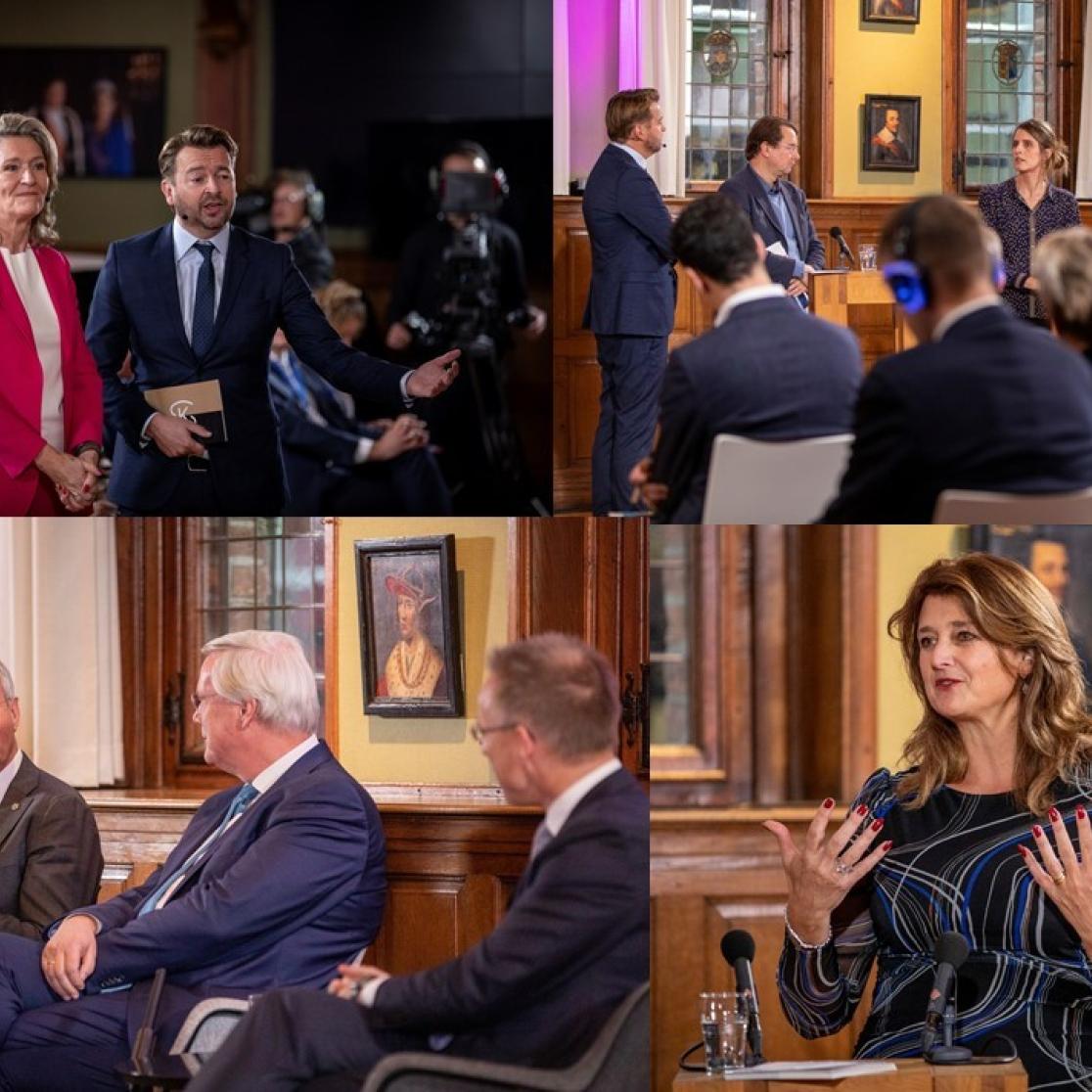
Prospects for cross border cooperation in Europe
Horizontal integration between regions alongside vertical integration from the EU, that was a recurring phenomenon during the Annual Conference. Prof. Dr. Joachim Beck has done a lot of research on cross-border governance and horizontal integration in the EU. In his presentation, he highlighted several findings from his latest studies. Border regions, it is about where 1/3 of the European population lives and represents 40% of the European area. "Cross-border cooperation is underestimated in the European debate, although it is very important," Prof Joachim Beck noted, however.

Read the ITEM newsletter including a recap of the Annual Conference 2022
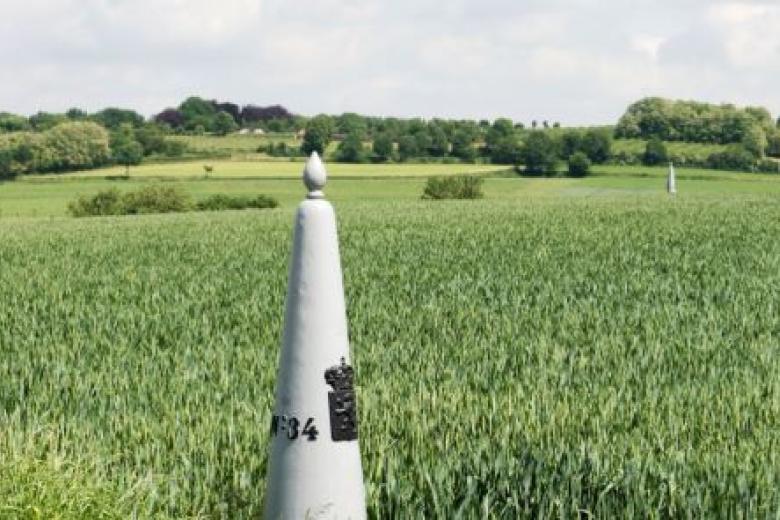
Read the news items about the publication of the Cross-border Impact Assessment 2022
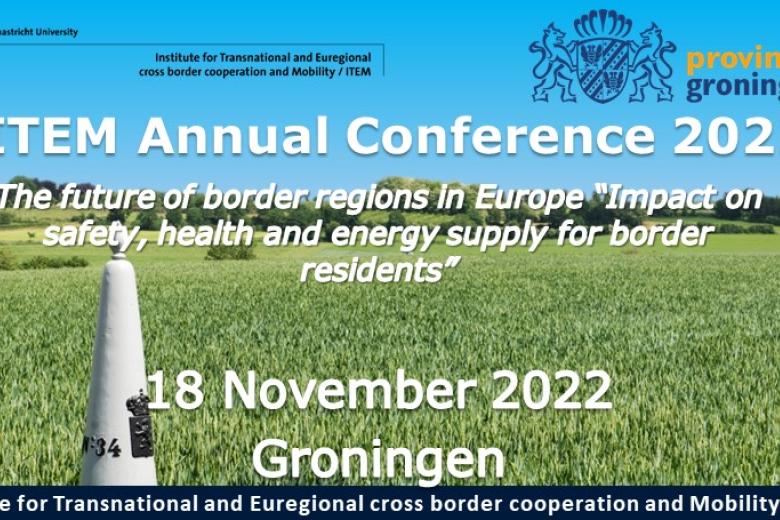
Read all about the 7 dossiers on the ITEM website
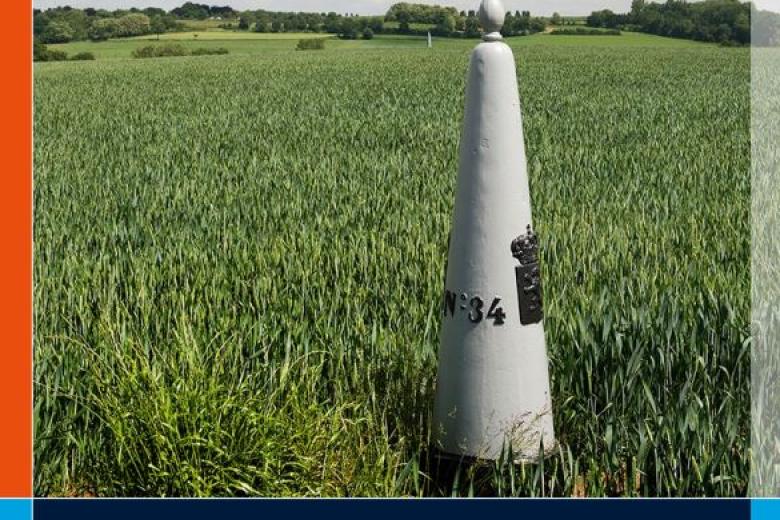
Cross-border Assessment summary
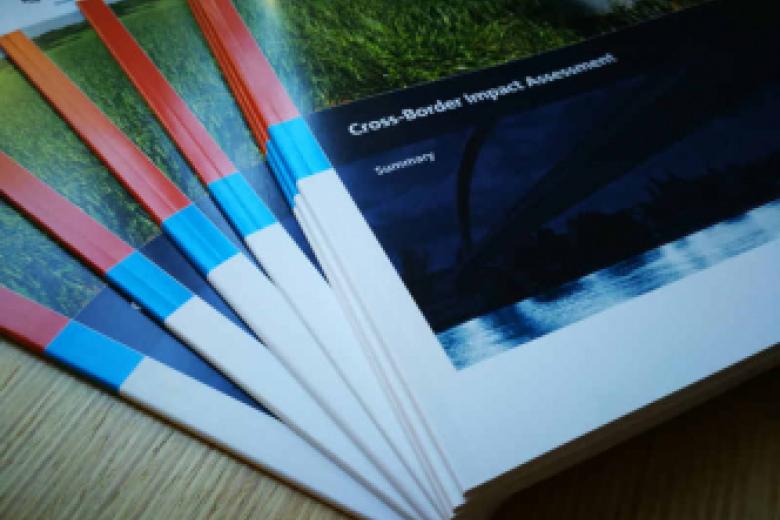
Our most prominent results are presented in an infographic
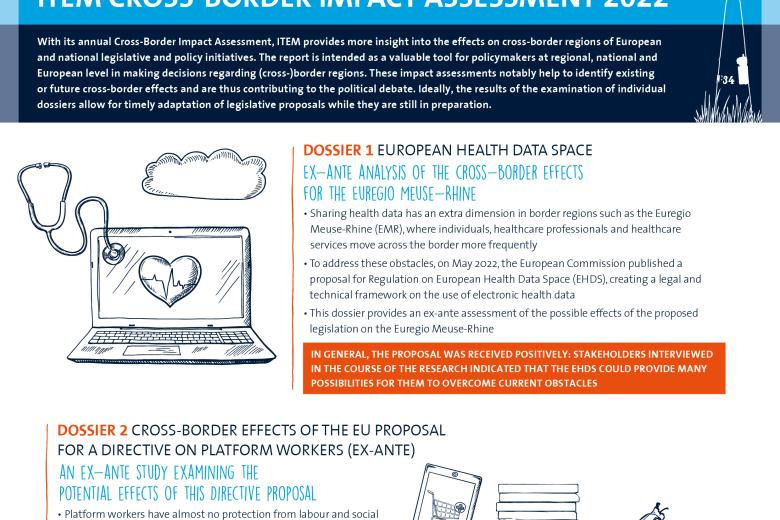
View or download the photos taken at the conference
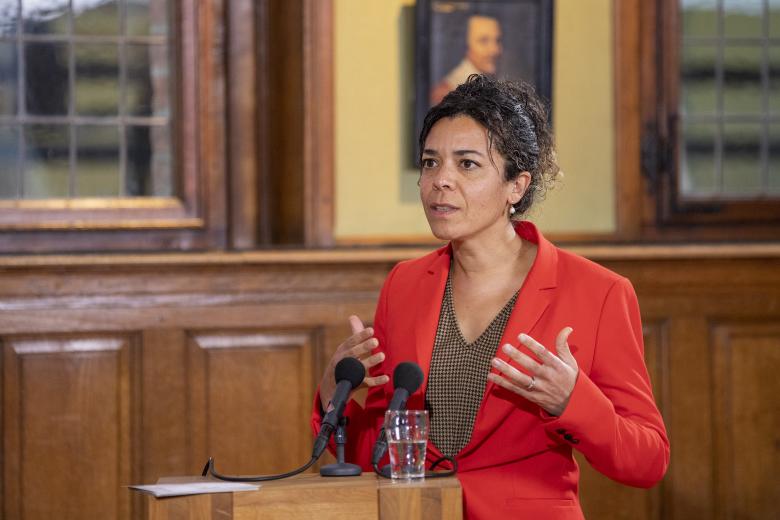
ON-SITE PROGRAMME:
Moderators: Ms. Simone van Trier and Mr. Sander Kleikers Side-kick: Mr. Pim Mertens
| 09.00-09.30 | Arrival and registration |
| 09.30-10.20 |
Welcome: |
| 10.20-10.40 |
Importance of good cooperation across borders: accelerating European energy transition? |
| 10.40-11.15 |
Energy transition in balance with living environment |
| 11.15-11.45 | Break |
| 11.45-12.20 |
Learning and growing together: the inhabitants of the border region in the picture |
| 12.20-12.45 |
“Outside in” Caroline de Gruyter, Journalist NRC Handelsblad |
| 12.45-14.00 | Lunch |
| 14.00-14.10 |
“In picture” ITEM pitches on ITEM Cross-Border Impact Assessment 2022 |
| 14.10-14.30 |
Cross-quality border effects methodology in importance of cross-border cooperation |
| 14.30-15.15 |
ITEM Cross-border Impact Assessment dossier highlighted: European Health Data Space (EHDS) – What does this mean for collaboration in border areas? |
| 15.15-15.30 |
Closing with Melissa van Hoorn, Deputy Province Groningen, and Prof. dr. Anouk Bollen-Vandenboorn, ITEM director |